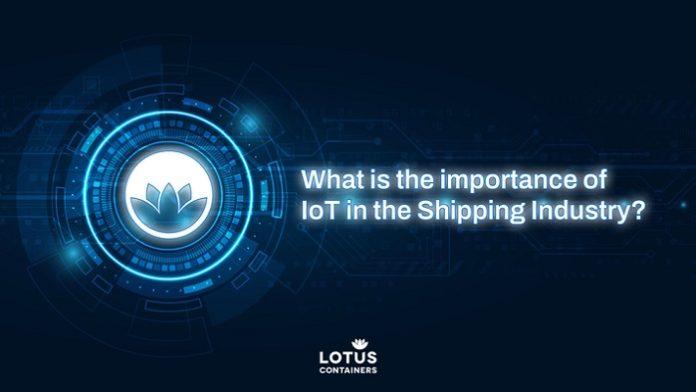The shipping industry is an essential part of the global economy. The maritime & shipping sector is responsible for transporting goods and resources to and from different parts of the world. This is a challenging environment where minor improvements can result in significant benefits. To stay competitive, shipping companies must invest in artificial intelligence developments. In this article, we will explore the benefits of AI in the maritime sector and how AI is influencing the shipping industry.
What exactly is artificial intelligence?
Technically, using data sets, computers can process information independently. In other words, it means that computers can learn; the term “machine learning” is frequently used to refer to artificial intelligence, and this technology is highly sought after across multiple industries of the global market. In other words, Artificial Intelligence (AI) refers to machines or computers behaving in ways we previously believed required human intelligence. AI can aid businesses with task automation, operational optimization, and improved decision-making. Artificial intelligence will continue to advance the shipping industry through new innovative technologies. Three specific ways in which AI is transforming the maritime sector are by providing partial autonomy to the automated units, evaluating and optimization of operations, and forecasting future trends.
To surpass the competition and accomplish sustainability goals, the shipping industry is adopting AI as an alternative solution. In addition, AI can deliver exceptional benefits to the supply chain and shipping operations. Some benefits include redundant tasks, fewer errors and risks, reduced costs, improved forecasting, faster deliveries through optimized routes, and more. This will continue the transformation of the shipping industry.
Benefits of Artificial Intelligence in the Shipping Industry
Artificial intelligence is the technology of using data as a tool to learn from the past to help you improve decision-making in the future is invaluable. Some of the extensive benefits of AI in the shipping industry include route optimization, automation, and enhanced analytics for decision-making, safety & increased efficiency.
- Advanced analytics: Advanced analytics generate insightful business decisions from various data sources. This will ensure that data-proven methods support your choices.
- Automated equipment: AI & automation play a significant role in the shipping industry. Along with it the importance of IoT is also immeasurable. Machine learning and IoT capabilities of Artificial Intelligence will analyze historical data by considering weather patterns or busy/slow shipping seasons. Automating processes can analyze & identify issues before they happen. This will allow time to make adjustments & modifications.
- Safety and Improved security: Artificial intelligence can reduce the possibility & chances of accidents. AI can be used to identify & detect threats and other malicious activities.
- Route optimization: Route optimization aims to build optimization models to determine and identify the most efficient path for a safer journey. With the help of Artificial Intelligence, minimum fuel consumption can be predicted by calculating the weather.
- Performance forecasting: Speed and power relationships could be used to forecast, foresee & predict changes in performance due to underwater fouling. To determine the rate at which the performance of the vessels is deteriorating, you might examine historical data.
How AI, is revolutionizing the Shipping Industry?
In recent years, the presence of AI in the logistics industry has become more apparent. The potential of artificial intelligence in this area is impressive, just like in the manufacturing industry. AI-based solutions can help streamline overland transportation, but they also have immense applications in the maritime industry.
Shipping goods is a fundamental component of the globalized economy, and rising customer expectations globally require ongoing optimization in this area. In a nutshell, AI is transforming the shipping industry in three distinct ways: granting partial autonomy to the automated units, analyzing and evaluating processes, and predicting future trends. Taking benefit of these three opportunities is a way to outperform the competition and accomplish sustainability objectives.
AI’s applications in the shipping industry are exponential, from equipment automation to forecasting. Let’s explore how AI is revolutionizing the shipping industry.
- Planning Shipment of Containers: Shipping companies can optimize their vessel scheduling with the help of predictive analytics to plan their journeys as effectively as possible. They can use the port calls information the port community systems provided, such as the destination, arrival time, trajectory, and trip duration. They can deal with unexpected scenarios like emergencies and enforced route changes with advanced technologies like machine learning and AI.
- Voyage Planning and Route Forecasting: Real-time data-based route forecasting enables businesses to adjust their routes based on factors like the weather and respond to unforeseen situations. The incident in the Suez Canal in 2021 demonstrated how essential these forecasting models are to the shipping industry. When the most famous freight transportation route was blocked, shipping and shipping container companies were forced to improvise and look for the most advance and cost-effective alternatives. They could get quick estimates from AI technology. Thereby, AI-based maritime data buoys and virtual buoys are becoming increasingly common in the shipping industry globally.
- Optimizing Fuel Consumption and Emissions Reduction: Global demand for maritime transportation will increase; as a result, we need AI solutions that help reduce the carbon footprint of ships, like route forecasting that considers fuel use. In addition to reducing emissions, they can help the carriers to reduce their polluting & environmental effect. Many shipping corporations use artificial intelligence to migrate from linear to circular supply chain structures to accomplish these goals.
Artificial intelligence has undeniable economic advantages for the maritime sector, fostering business expansion and opening new investments and development opportunities. By abandoning these technologies, the businesses lose their competitive edge against rivals who will soon be utilizing AI & machine learning. Therefore, from a commercial standpoint, putting Artificial Intelligence into practice is a crucial requirement for surviving in the future market.



